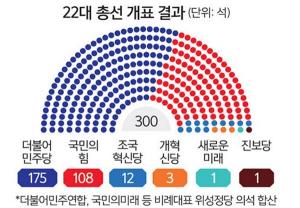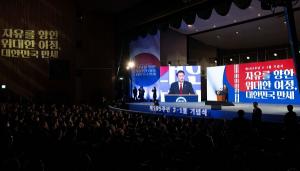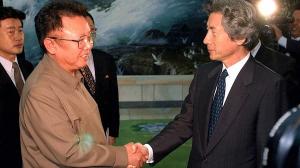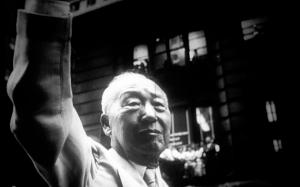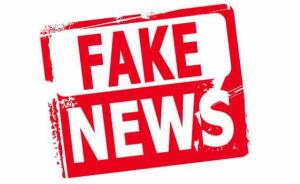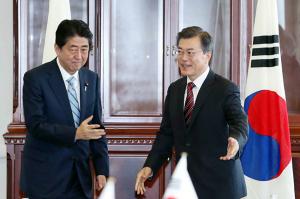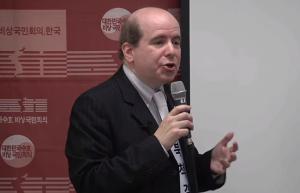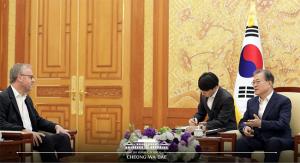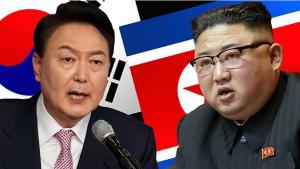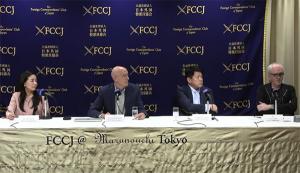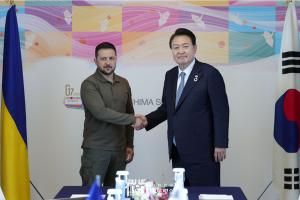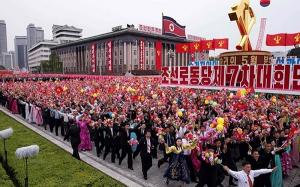In short, North Korean refugees are special minority absorbed into a population of 47 million in South Korea. As a by-product of the division between the North and South, they have hard time adjusting to South Korean society due to the gap of living standards, cultural differences, and different way of thinking.
Early in their introduction to South Korean society, they have high satisfaction due to incomparable political freedom, economic prosperity, and multifaceted support for settlement from the government and the community. However, as time passes, being forced to face the cold reality of competitive capitalistic society, their satisfaction rate drops significantly. The bigger the exposure, the lesser the satisfaction rate. Can these North Korean refugees stand as major players for unification? I think we should begin by understanding our stations and capabilities objectively and realistically.
 |
||
| ▲ North Korean refugees begin at the almost same starting line in the South, but in their adjusting process, they fall roughly into three groups. ⓒ Lee Yun Kyung | ||
Three Groups of North Korean Refugees
North Korean refugees begin at the almost same starting line in the South but in their adjusting process, they fall roughly into three groups. The first group of refugees are those who made successful transition either by their academic achievement, as entrepreneurs or securing employments in stable companies. They set their goals to be integrated into the mainstream of the South, grow out of preferential treatments, and realize their social values through education, building capacity and competitiveness; thus exercising positive influence on South Korean society. However, this group seems to be a tiny minority.
The second group are those who belong to and devote themselves to activist groups. They focus and work toward the democratization of the North and deserve some credits. But their unilateral struggle against the North without proper evaluation of their situation, capabilities, and skillful communication with South Korean Society results in poor recognition. Though they began with fanfare, the influence of their organizations dwindles with assertions lacking logic, poor management, and without necessary capabilities and skills.
Presuming to be the spokesperson of North Korean refugees through media before grasping their situations, they have negative influence on the society. Because of the lightness of their rash actions before prudent thinking and careful preparation, they contribute toward negative images of North Korean refugees and hinder their normal growth as freshmen of South Korean society.
The third group are those who throw out complaints in spite of receiving support for settlement from South Korean society. They point their fingers to the government for their failure to settle rather than to their lack of efforts. 60.2% of the total refugees do not have jobs and rely on government subsidy for basic livelihood. Some escape to third countries having failed taking root in the South. Quoting the data from the Department of Foreign Relations and Trade, The Korean Daily reported that 1,000 refugees have filed political asylum in Briton since 2004 and 70% of those possessed South Korean citizenship. There were 20 cases of false political asylum and deportation from Norway. According to the Department of Foreign Relations, in Briton and Norway alone, approximately 600 North Korean refugees with South Korean citizenship are stranded.
Three Characteristics of North Korean Refugees
North Korean refugees have tendency to overestimate themselves. For example, some demand their licenses acquired from the North to be acknowledged without reevaluation; some criticize South Korean society, self-deceived as if they were admitted to the reputable universities by their own merit, not by preferential treatment. They are unbecoming in the eyes of South Koreans who put out tremendous efforts to get good education and develop capabilities. Some with master's degree and doctor's degree who do not command any one foreign language, or cannot write any decent thesis, no doubt they mar the overall image of North Korean refugees.
North Korean refugees are highly self-assertive. South Korean scholars studying the North say, “The higher the position they held in the North, the more self-assertive they are to prevent any meaningful communication.” A staff at a NGO complains that even college students attending South Korean universities self-assert too strongly to communicate; they believe their thinking so absolute that they are not able to engage in conversation. Either out of tragic ignorance that only they know everything about the North or being too confident, they would not acknowledge what others have to say. It is especially true of those so-called intellect from the North.
North Korean refugees are emotional, short-tempered, and have difficulty to distinguish between their personal and official affair. Propaganda machinery of North Korea draws out loyalty to its leaders and the country by stirring up emotions and psyche. Having been brainwashed and raised up in such an environment for decades, North Korean refugees easily betray their feelings and are enraged in trivial matters. One cannot achieve anything led by emotions and rage.
Can North Korean refugees play a key role in unification?
Of course, not all North Korean refugees are like that. However, can North Korean refugees with these characteristics stand as agents for unification? North Korean refugees cannot become agents of unification, simply because they are from the North. Whether or not they could become agents of unification will depend on their preparation. When they study and develop capabilities for unification, work hard and are recognized in various areas, then as people who have experienced both societies, they can become agents of unification.
There are quite a number of North Korean refugees who self-proclaimed to be agents of unification. According to them, they can become agents of unification with experience of the North alone. Without efforts and preparation, they would rather remain as a roadblock on the road.
In order to overcome it, it is most important to build our capabilities. Without any preparation, there is nothing we can do upon returning to the North when unified. Even if we got education in the North, we'd better study again in the South and be approved our abilities. For democratization and human rights movement, it is imperative to develop our capacities to be able to persuade others with balanced and realistic logical theories and build national consensus.
Next, we have to be self-sufficient financially. We have to let go the idea that the government should and could take total responsibility until we successfully settle down; we have to set the goals, utilize maximum resources given and environment, and strive for economic independence.
There is a rising chorus that in the coming general election on April 11, we should elect our own who will represent 23,000 of us. Since he or she will take up the serious responsibility to be the spokesperson for 23,000 North Korean refugees and prepare the way for unification, it has to be someone who has proven qualifications and capabilities. It is high time to elect a North Korean refugee to the Parliament as a symbol of the North Korean refugee community. Excluding minors from 23,000, the number is a little over 10,000, which is too small to have a proportional representation. However, it will be meaningful to have our own voice.
Looking back, some erroneous actions of the senior members of our community resulted in mistrust and rejection of the general population. The time requires the appearance of a leader equipped knowledge and skills. Unconscionable politicians who would not shy away lies and falsehood in order to promote personal gains would cause more harmful consequences. That is why a leader should receive a thorough ethical scrutiny and be tested of competence.
Written by Kim Myung Sung,
Executive Director
Unification Vision Research
Translated by Katherine Koh,
Education Director
Arise Church, Los Angeles
Kim Myung Sung ukoreanews@gmail.com
<저작권자 © 유코리아뉴스, 무단 전재 및 재배포 금지>


 미·일 군사일체화와 한반도 정세의 평화적 관리
미·일 군사일체화와 한반도 정세의 평화적 관리

